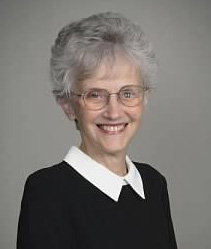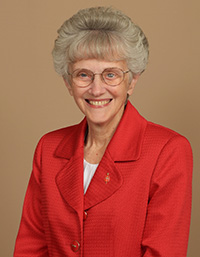New England Conference & Granite District News
|
|
|
|
||||
|
May 1, 2023
As Christians, Let’s Commit to Climate Care 
Since arriving in New England in January, I have been impressed with the passion of our churches for environmental care.
At last year’s session of Annual Conference you voted to hire a part-time “Climate Coordinator” to engage our churches in practical steps that will slow climate change. You have several “EarthKeepers” in your midst (people who have been trained by the General Board of Global Ministries to engage in local climate preservation projects.) You have a helpful link on our website (www.neumc.org/creationcare) that directs folks to many resources from our denomination as well as a variety of community-based and state-sponsored efforts. I commend you for this important ministry.
I would like to highlight food waste as part of our stewardship of the earth. If we were honest, we would all admit that we have wasted food, a lot of food, and we often don’t think about its impact. According to Recycle Trac Systems, Americans throw away about 40 million tons of food every year, more than any other country on the planet. The rotting food in landfills creates methane gas, which is warming our planet.
Jesus modeled food conservation on the day he fed 5,000 people. After everyone had eaten, he sent the disciples back out to collect what remained. “Gather up the leftover fragments, so that nothing may be lost.” They came back with 12 baskets full (John 6:12-13).
Rev. Travis Bonnette-Kim, who serves First UMC in Melrose, MA, told me about a program that’s reducing food waste and feeding people in their community.
The Food Drive, which began in 2020, utilizes its extensive volunteer network to recover good food that would otherwise be thrown away and delivers it to people dealing with food insecurity.
The Food Drive partners with over 25 grocery stores, restaurants, farms, and other businesses to recover their excess food, and distributes that food through 24 community pantries, soup kitchens, low-income housing facilities, and senior housing facilities in Everett, Lynn, and Malden, Medford, Melrose, Saugus, Wakefield, and Woburn, MA.
The Food Drive reached more than 145,000 people in 2022, and aims to provide food for some 200,000 this year. Read more about The Food Drive.
How can you personally take responsibility for the food waste in your home and at food-related events at the church? Can you take part in salvaging food from grocery stores that can be donated to feeding programs and food banks? Can you eat all the leftovers in your refrigerator? Find tips for reducing food waste from the EPA
Are there farms in your area that allow people to “glean” vegetables too small for market or left behind by harvesting machines from the fields? The United Methodist Men have long partnered with The Society of St. Andrew (endhunger.org) to engage gleaning work teams. The society has fed millions of people since its founding in 1979. This year alone, they gathered and distributed 2,398,463 pounds of fresh produce, which became 9,593,852 servings of food.
Being a disciple of Christ means taking care of those in need, and food insecurity is a serious problem in this world. Responsible stewardship of the earth’s bountiful resources means many things – including not wasting the food that God has provided for us. This is yet another way we can demonstrate our faith. Each one of us can play a part, and together we can make a difference.
Jan. 19, 2023

Cabinet Appointments
Rev. Jill Colley Robinson and Rev. Taesung Kang
 Bishop Peggy A. Johnson is pleased to announce the following New England Conference Cabinet appointments that will be effective July 1, 2023.
Bishop Peggy A. Johnson is pleased to announce the following New England Conference Cabinet appointments that will be effective July 1, 2023.
After six years on the Cabinet, Rev. Taesung Kang, who serves as Granite District Superintendent, and Rev. Jill Colley Robinson, who serves as Green Mountain District Superintendent and Cabinet Dean, will have their appointments extended for another year.
“I am very grateful to Jill and Taesung for their willingness to continue as superintendents,” said Bishop Johnson. “These are turbulent days for our conference and The United Methodist Church; having experienced leaders in place is critical as we navigate this time of change.”
The Cabinet and the respective District Committees on Superintendency were delighted and grateful to receive the news of these continuing appointments.
“In our short time together, I have come to appreciate the deep faithfulness and exceptional dedication of these two servant leaders,” Bishop Johnson said. “I know their districts are blessed by their leadership.”
Kindly keep Rev. Kang and Rev. Colley Robinson, their families, the staff, leadership, and congregations of these districts in your prayers.




 While I was at our recent General Conference, I had the privilege of preaching at a vibrant new church start, FaithBridge UMC in Blowing Rock, NC. Before the service began, the pastor showed me around the property including the lovely streams and woods that surround the church. He pointed out the two rivers that come together there. The place where the two become one is the deepest part of the stream. It’s the very place
While I was at our recent General Conference, I had the privilege of preaching at a vibrant new church start, FaithBridge UMC in Blowing Rock, NC. Before the service began, the pastor showed me around the property including the lovely streams and woods that surround the church. He pointed out the two rivers that come together there. The place where the two become one is the deepest part of the stream. It’s the very place

